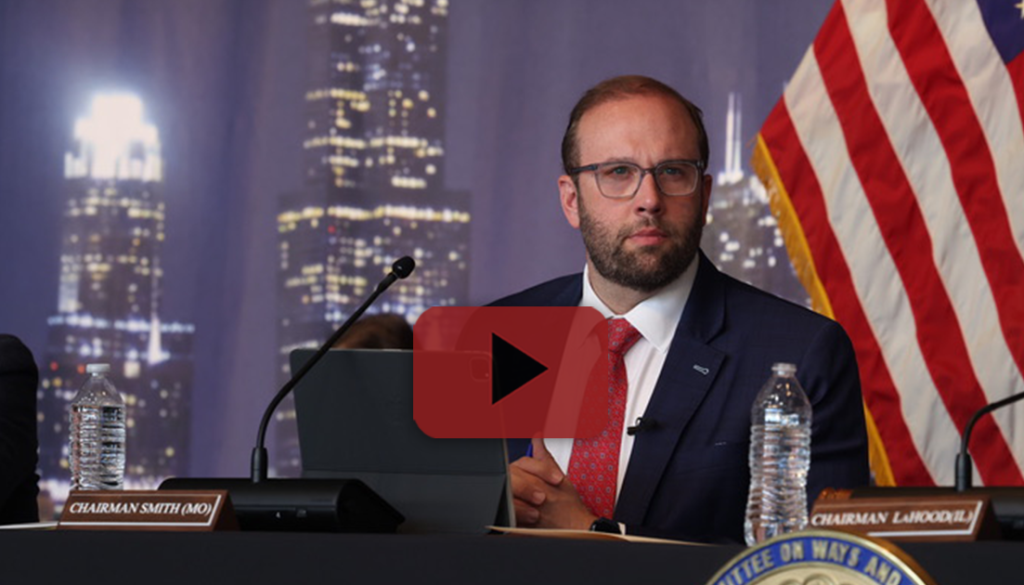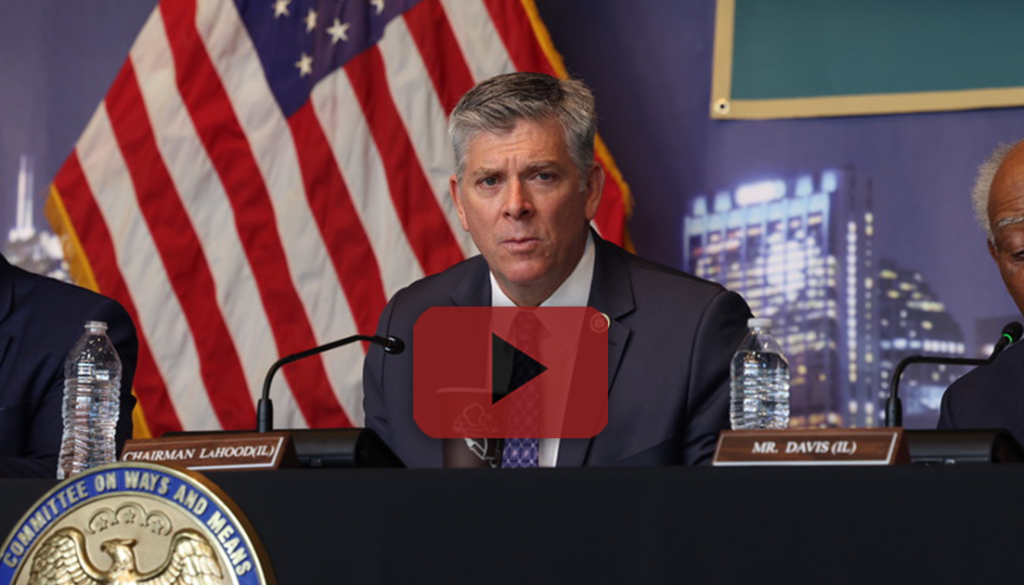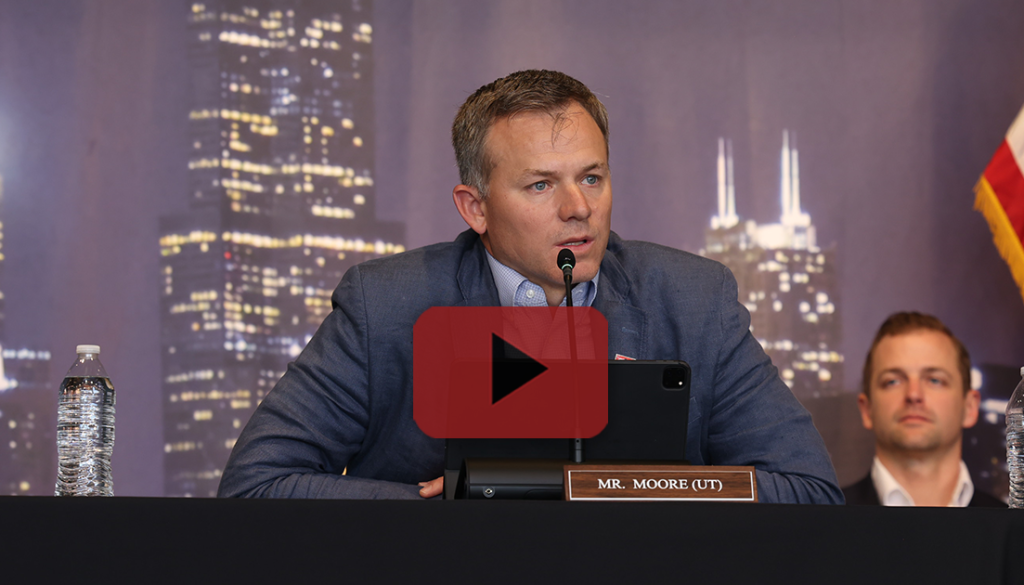In Chicago, Witnesses Highlight the Power of Work to Lift People Out of Poverty
CHICAGO, ILLINOIS – Inside the nation’s oldest faith-based homeless shelter, witnesses shared how work made possible their journey from poverty to self-sufficiency during a Ways and Means Subcommittee on Work and Welfare hearing on Tuesday. The hearing made Congressional history as the first hearing held in a homeless shelter by a House committee. A common theme among witness testimony was the power of work to provide not just an income, but also dignity, purpose, and meaning.
One witness, a director of a community-based charity in Champaign, Illinois, shared the transformative results when his organization changed their approach to helping those in poverty from one of “no strings attached” handouts to one that emphasizes work and volunteering in exchange for food and other material supports. At Salt & Light, families must work to earn store credit for food support. Another witness, director of a Central Illinois charity, shared her journey of homelessness with her two children to finding stability and restored purpose through work and thriving in her 27-year career working at the Peoria Dream Center to give back and help others.
The nation’s more than 80 federal welfare programs, that collectively cost $1 trillion, largely ignore the importance of connecting those in need to meaningful work, resulting in a social safety net that creates dependency, diminishes the human spirit, and traps people in poverty. Connections to work help put Americans on track toward a better life.
- Less than 3 percent of Americans with full-time jobs live in poverty.
- 36 percent of non-working SNAP beneficiaries reported feeling worthless or hopeless, while only 22 percent of working SNAP recipients reported similar feelings.
- One in three children who grow up in poverty will live in poverty as adults.
The hearing follows introduction of legislation from Ways and Means Committee Members to stop waste, fraud, and abuse of critical welfare dollars in the Temporary Assistance for Needy Families (TANF) program meant to help Americans in need.
Work Is Not the “Boogeyman”
Beyond providing a paycheck, work has several positive benefits, like better mental health, a sense of meaning and purpose, and escape from abusive or difficult circumstances. Ways and Means Committee Chairman Jason Smith (MO-08) asked Gianno Caldwell, a Chicago native, about rhetoric that paints work requirements in federal programs as a punishment or misguided and wrong.
Chairman Smith: “I noticed that when you were giving your testimony, it looked like you had not hit all the points that you wanted. Is there anything additional that you would like to share?”
Gianno Caldwell: “I think for many of us it’s become the bogeyman that you say someone has to work to earn benefits or rather be able to have benefits. I think that’s a bogeyman. I think it’s wrong. I think for a lot of individuals, they want to work. People in the communities that I grew up in, they wanted to work. They didn’t know the processes in some ways and then some others would rather have stayed home. When you stay home, things like depression happen, domestic abuse that could happen. Then there’s criminality that can come right after nefarious activities to try to earn money and continue to receive your welfare at the same time.”
All Work and People Have Value
Work allows those in poverty to build and use their skills to escape poverty which has ripple effects for families and communities. Regardless of the income or title, all work has value and merit. In response to Work and Welfare Subcommittee Chairman Darin LaHood (IL-16), one witness explained that the attack on low-wage work is an attack on the Americans who perform those jobs.
Rep. LaHood: “I’m wondering if you could comment on linking welfare benefits to the expectation of work as being ‘mean’ or ‘unfair’ in some way. Instead of reducing these requirements, do you think it would be good to expand them to other federal means-tested programs?”
Matt Paprocki: “You know what I think is mean? How we treat poor people in this country. We treat them like they’re liabilities and they’re not assets. They’re raising their hand and they’re saying, ‘I want help.’ Instead, we give them a little bit of money on a plastic card, and we tell them to go away. That’s mean. We tell them that their jobs don’t have purpose. That just because it’s low wage, it’s low value. We whisper these little lies inside of it as if dignity is commensurate with pay. It is not. Jobs have value. Humans have value. Poor people have value, and they are some of the greatest assets we have in this country.
Welfare Checks Cannot Remove Barriers Blocking People from Work
The path from welfare to prosperity often requires managing or solving other problems that create barriers to work, like mental illness, domestic violence, or substance abuse. Rep. Blake Moore (UT-01) highlighted the importance of addressing these barriers as opposed to more welfare checks that keep people dependent on the government.
Rep. Moore: “Mr. Butler, oftentimes we hear about we just need to put more money in this; we need to provide more funding for these different types of programs. We can’t just write more checks. We have more fundamental issues. Can you speak to the best way to serve people other than just money?”
Brian Butler: “I think it comes back to getting people to the place where they can work. Folks coming into homeless shelters, and the place that I work, [the priority] is getting those folks stable, then using that asset-based approach on how they want to move forward, and then coming alongside them and helping them to achieve that…The mental health crisis in the United States of America is atrocious for the United States of America. We have folks coming in that cannot care for themselves, mentally, physically, emotionally, spiritually…”



